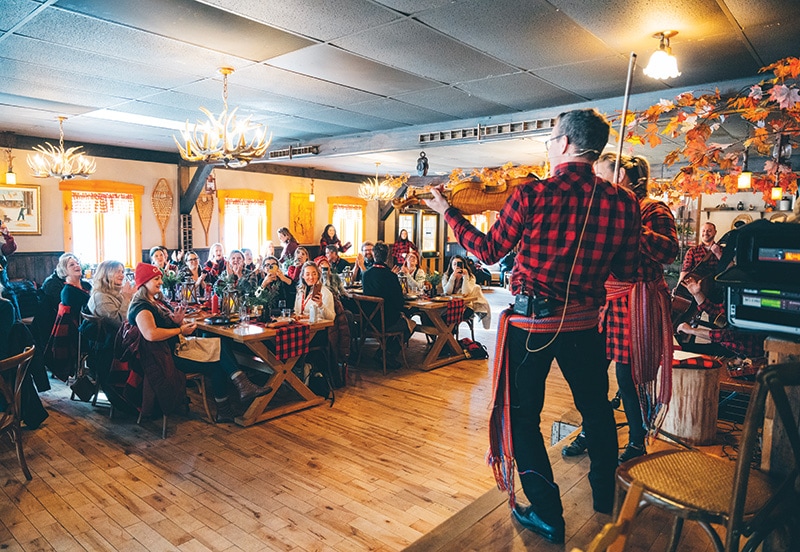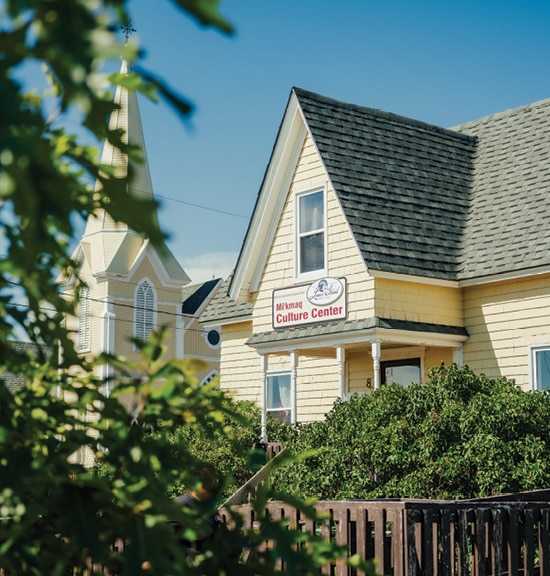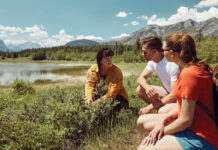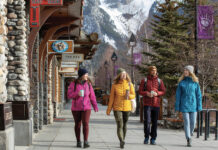
Occupying more than 3.8 million square miles, Canada is the second largest country in the world, with a physical variety just as immense, from rugged mountain peaks and Arctic snowfields to rainforests and treeless tundra plains.
The cultural variety in Canada is every bit as impressive – with distinct and diverse experiences, traditions and ways of life apparent from coast to coast to coast.
Such a cultural mosaic is of particular interest today, say industry experts, as post-pandemic incentive participants have started searching for deeper and more authentic connections in their host destinations.
Whether centered around music, storytelling, art, food or all of the above, attendees today are seeking immersive, experiential and community-based encounters focused on learning and discovery.
With diversity as its cultural bedrock, Canada is the ideal destination for groups hoping to go beyond entertainment to cultural enlightenment. Following is just a sampling of what is available.
French Canadian Culture
Anchored by the quintessentially French-Canadian cities of Montréal—North America’s largest French-speaking city—and Québec City, a designated UNESCO World Heritage site, the province of Québec spreads beyond the architecture, cuisine and Old-World charm of its bustling metropolitan areas. Outside of these cities, attendees will find some of Canada’s most magnificent natural attractions, including countless lakes and rivers, and spectacular forests ranging from leafy and temperate to coniferous and freezing.
While incentive groups will no doubt want to explore Québec’s many cultural and natural treasures, there is a sweet activity here that gives them a taste of both—learning how to make maple syrup at a traditional sugar shack during sugaring-off season, which lasts from about late February to early May.
Practiced for generations, this only-in-Canada activity can be enjoyed at sugar shacks across the province. Depending on which shack your group visits, they may arrive by horse-drawn sleigh, participate in the process of turning sap into syrup, try their hand at sawing and axe throwing, and maybe even learn how to play the spoons.
A good maple syrup harvest is always a cause for celebration, signaling that natural forces such as moon phases and wind direction have cooperated to produce a healthy yield, so most sugar shack tours end with wine, a maple-infused feast, music, singing and dancing.
It’s a chance for your group to become part of the community while learning about and appreciating a tradition that has stretched across the centuries, from the first Indigenous Peoples who discovered and cooked with maple syrup to the thriving Canada-based industry of today, which delivers nearly 80 percent of the world’s maple syrup. Sucré!

Mi’kmaq Culture in Eastern Canada
Set off the coasts of New Brunswick and Nova Scotia, Prince Edward Island (PEI) lures sunseekers with pristine beaches and warm Gulf of St. Lawrence waters, while small fishing towns and villages offer historic byways and cobblestone streets, one-of-a-kind shopping and dining, and spectacular waterfront views.
Together with surrounding islands, PEI is also known as Mi’kma’ki, the traditional Mi’kmaq territory. In the capital city of Charlottetown, groups can stop in at Mi’kmaq Printing & Design whose mission is to bring Indigenous teachings to life through clothing designs promoting traditional culture while also providing employment within the community. Items include shirts and hats featuring meaningful cultural symbols and messages. Groups are invited to learn more about how the Mi’kmaq incorporate their values, worldviews and practices during a workshop offered by the company.
Set in PEI’s Malpeque Bay, Lennox Island provides visitors with the chance to hike breathtaking trails, peruse community-owned shops and connect with the Mi’kmaq by taking part in their quill work, as well as weaving their own moose hide drums to take home with them.
Mealtime is sharing time, as your group heads to the beach with members of the community to prepare fresh clams and bannock—traditionally made bread—which is cooked in the sand. As dinner marinates on the beach, teachers and storytellers regale the group with tales of life on Lennox Island, transporting them into the Mi’kmaq world for moments that will stay with them always.
Every moment immersed in Canada’s cultural treasures and timeless history will continue to enrich each group member’s life as a treasured memory or even an illuminated new way of looking at the world. It will be unforgettable.
Looking to learn more?
Contact Jennifer Attersall—Acting Senior Director, Business Events, Destination Canada
E: [email protected]
T: +1 403-923-5972
For more information, visit businesseventscanada.ca









